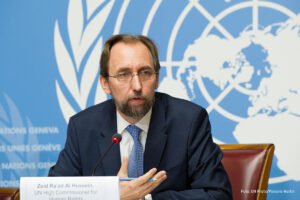The Financial Action Task Force (FATF) is responsible for defining strategies to prevent money laundering and ensure the functioning of the financial system.
It is an intergovernmental body created in 1989. with the intention of establishing the standards and criteria for the implementation of legal, regulatory and operational measures that will allow the company to combating money launderingThe organization's web site also includes information on its activities in the area of the financing of terrorism and the financing of the proliferation of weapons of mass destruction. This international action organization oversees the integrity of the world's financial system in order to eliminate the possibility of its being violated.
Its work for the past 32 years has focused on the unification of the criteria and recommendations for dealing with any intrusion that damages and affects the financial system around the globe. The first suggestions issued by the FATF in 1990 focused on the misuse of financial systems due to money laundering from drug trafficking. Six years later its scope was broadened to include money laundering beyond drug trafficking. In 2001, the financing of terrorist organizations was also taken into account and in 2003, fourteen years after its creation, all the recommendations were revised to be endorsed by more than 180 countries.
"Countries must first identify, assess and understand the money laundering and terrorist financing risks they face, and then take appropriate measures to mitigate the risks. The risk-based approach allows countries to adopt more flexible measures to target resources more effectively and apply preventive measures commensurate with the nature of the risks to focus their efforts more effectively."The nature and operation of these recommendations are explained.
Money laundering or money laundering is defined by The U.S. Office of Foreign Assets Control (OFAC), as a crime committed to disguise assets so that they can be used without detection of the illegal activity that produced them. Organizations involved in these crimes employ the established economic system to give a legal appearance to their actions.
Keys to the FATF strategy
The forty recommendations issued by the FATF are grouped in seven thematic areasAML/CFT Policies and Coordination; Money Laundering and Forfeiture; Financing of Terrorism and Proliferation Financing; Preventive Measures; Transparency and Beneficial Ownership of Legal Persons and Other Legal Structures; Powers and Responsibilities of Competent Authorities and Other Institutional Measures; and International Cooperation.
All of them were written so that each country could identify financial crime risks. and develop policies to enable them to combat money laundering, the financing of terrorism and the proliferation of weapons of mass destruction. In addition, the suggestions are a basis for the development of preventive measures for the financial sector and the establishment of powers and responsibilities in the institutional sphere.
Following these strategies improves transparency and availability of information on the legal structures of the financial apparatus, which contributes to international cooperation in these matters.
As part of the process of measuring the results of the FATF suggestionsThis group not only monitors their performance in the jurisdictions that apply them, but also evaluates the situation in those countries where these strategies have not been taken into account.
The countries concerned must adjust their legal framework These statutes, with the support of specialists in the area of financial law, will help to establish effective measures to prevent the occurrence of crimes related to money laundering and terrorism.













